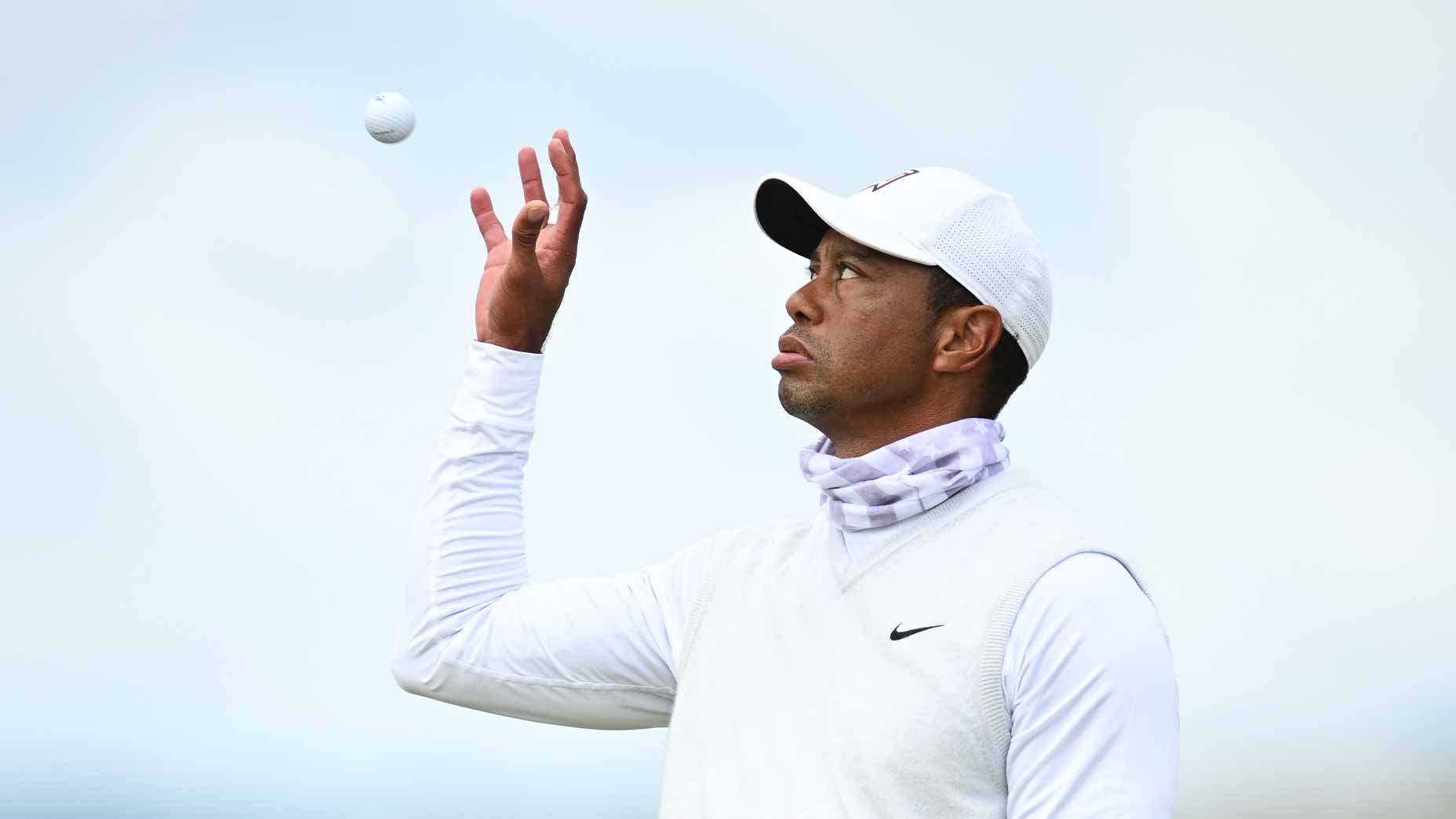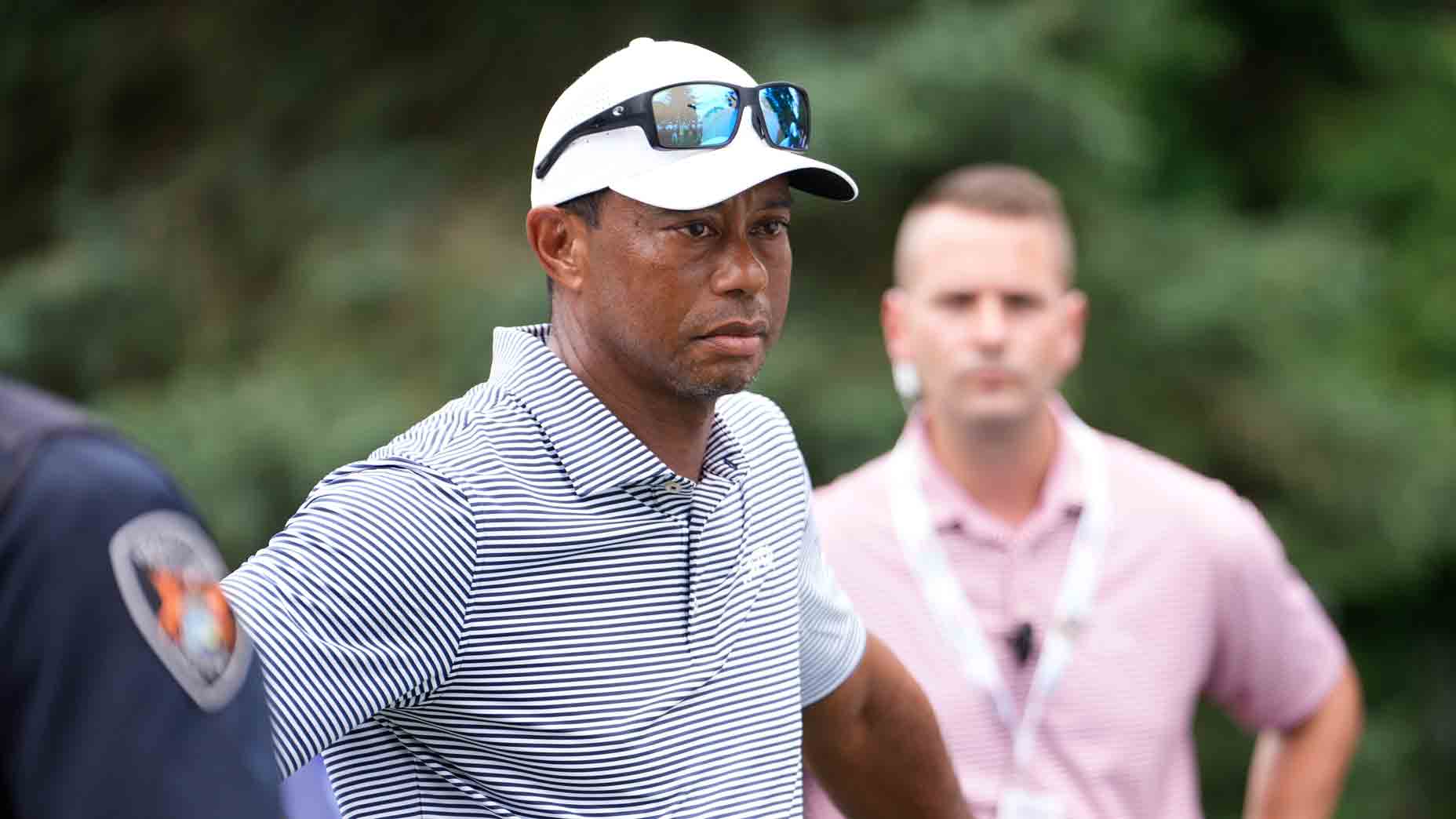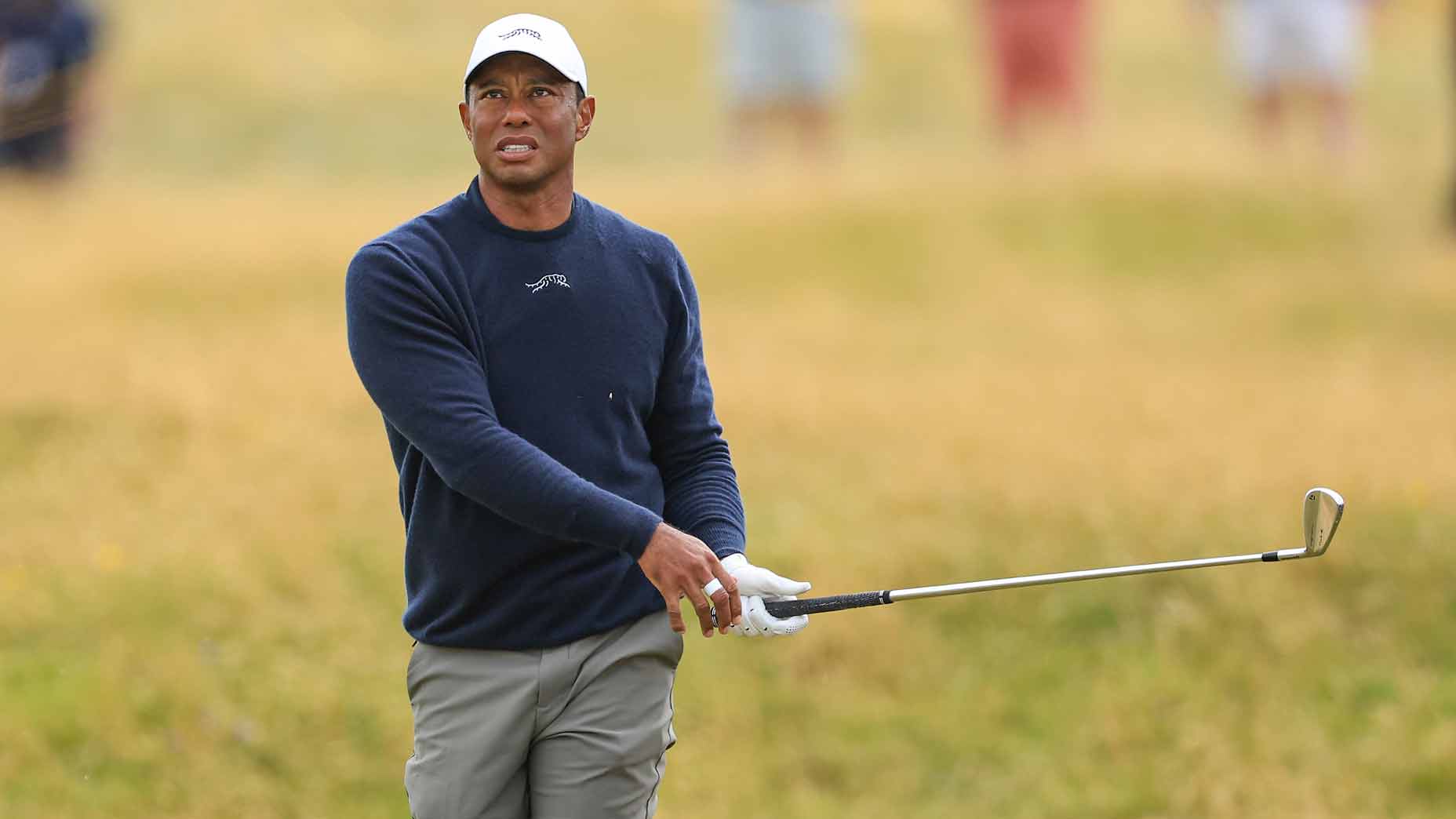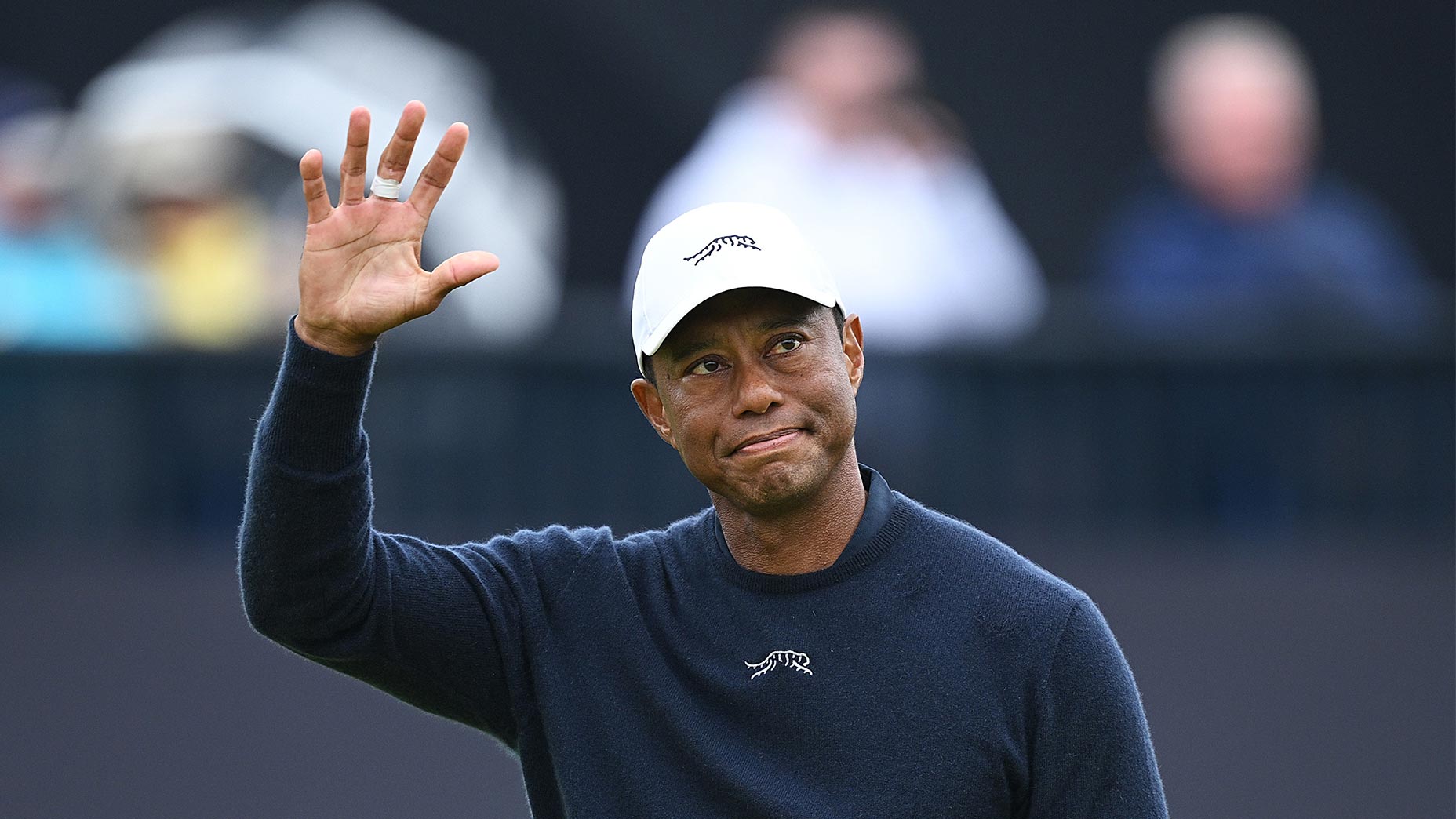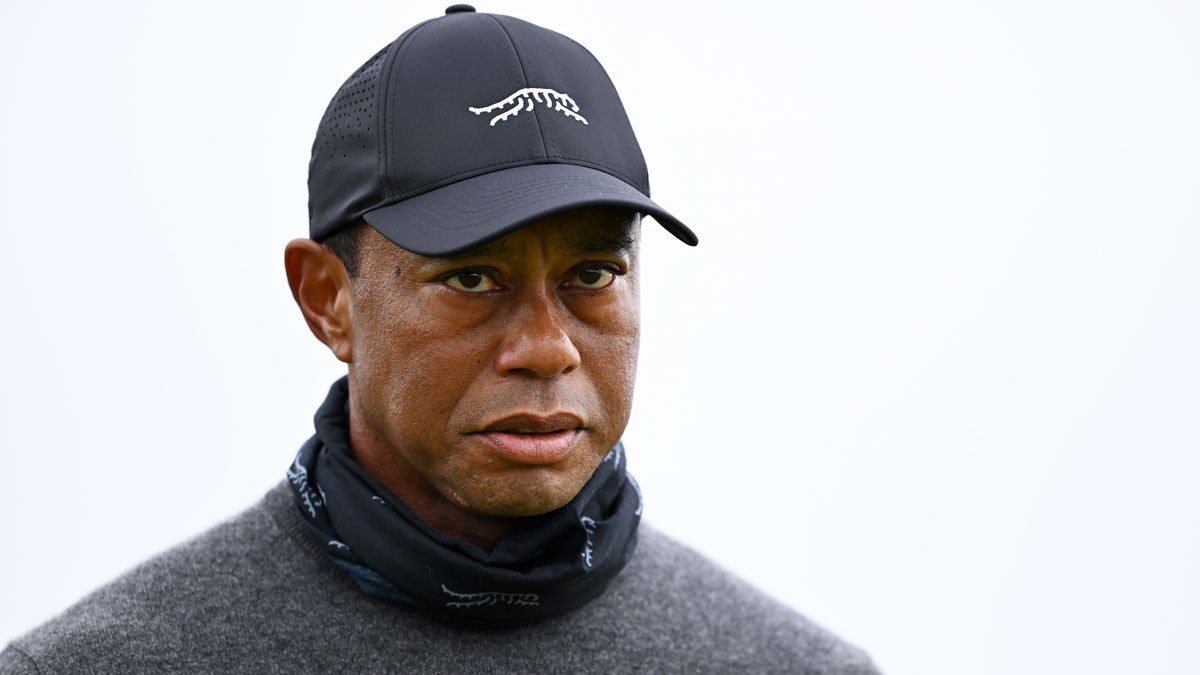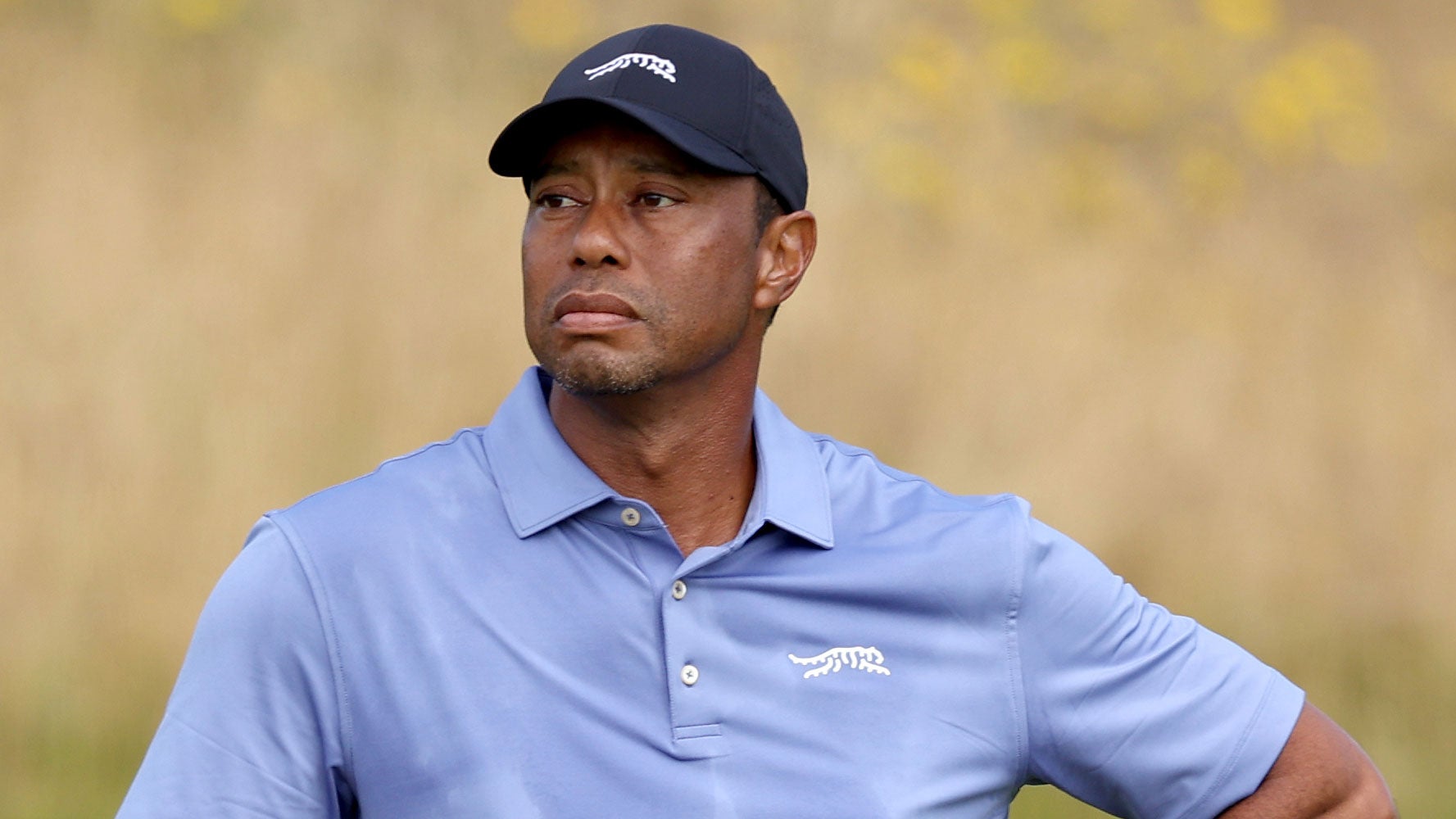The logical reason Tiger Woods joined the PGA Tour policy board, according to Rory McIlroy
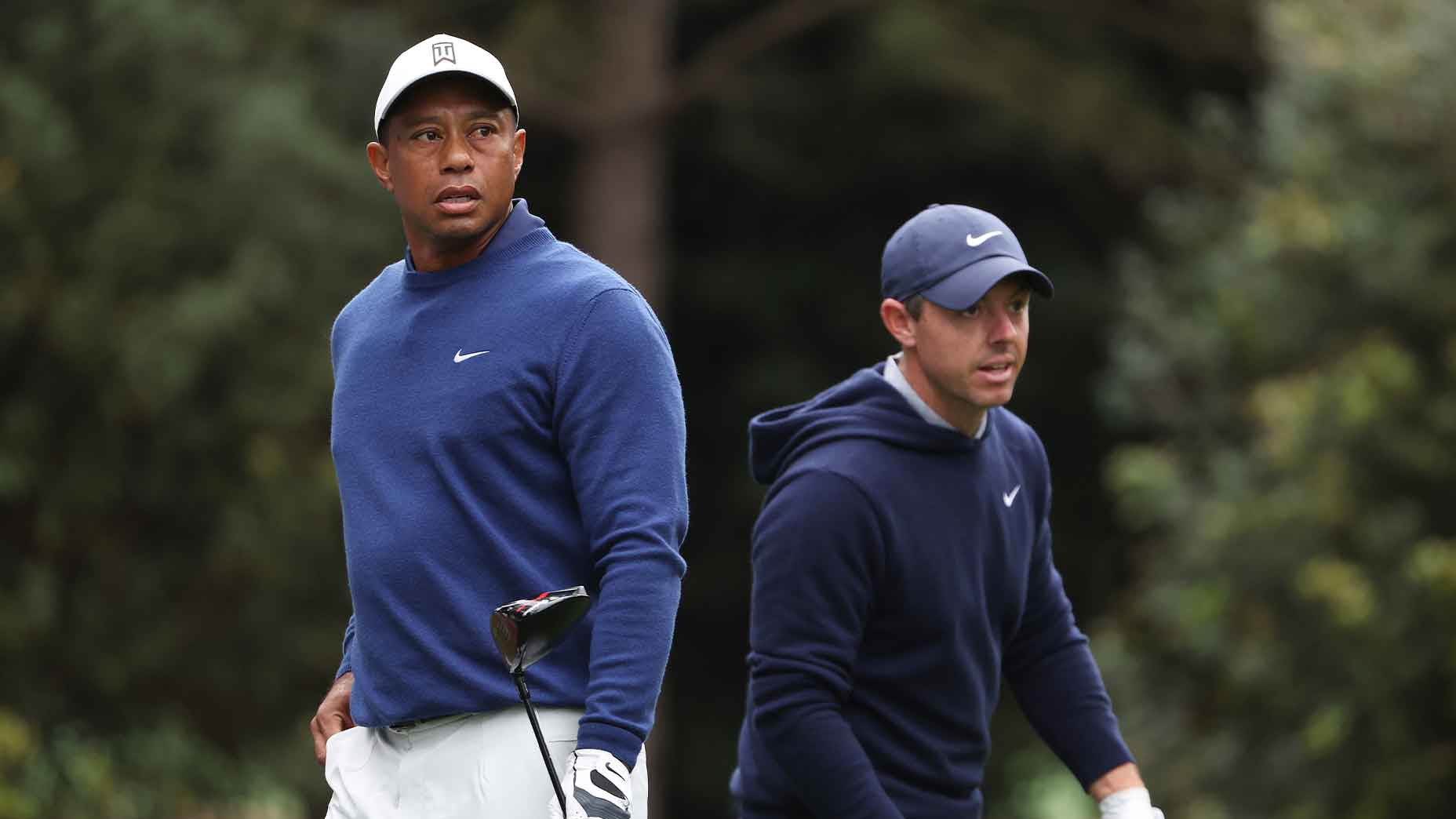
Tiger Woods has joined Rory McIlroy on the PGA Tour policy board.
Getty Images
It seems Tiger Woods’ decision to join the PGA Tour policy board was really only a matter of time.
In this case, an overabundance of it.
As the golf world grapples with the fallout from last week’s bombshell announcement that Woods had led a group of players to reshape the image of professional golf, the first details are beginning to creep out about what caused it. And at this week’s FedEx St. Jude Invitational — the first full-field PGA Tour event since the announcement — the theory surrounding Tiger’s involvement in the whole ordeal can perhaps best be summed by Woods’ co-board member, Rory McIlroy.
“Tiger has stepped up for all of us on Tour,” McIlroy said Wednesday. “I think he realizes that the players that are on the policy board were trying to play regular golf, and at the same time try to navigate all these different things, as well…”
Then McIlroy trailed off for a beat.
“He’s maybe got a little more time on his hands than we do.”
Before we get any further, a recap: Woods led a group of more than 40 players in signing a de facto list of demands for PGA Tour commissioner Jay Monahan last Monday, an effort to reestablish player control of the PGA Tour in the aftermath of Monahan’s secretive merger agreement with the Saudi Public Investment Fund. The demands effectively asked Monahan to surrender his unilateral governing authority to the PGA Tour policy board, a group of six players and six business professionals who help to guide the Tour’s general processes. The kicker, though, was the player group’s final request: that Woods be installed as the seventh player board member, granting the players a voting majority over Monahan.
Monahan quickly agreed to the terms, setting off a groundswell in the sport’s largest pro tour. The same legislative structure that had allowed Monahan to negotiate an agreement with the PIF while the majority of pros remained in the dark had been forced out, replaced by a new one led “by the players, for the players.” Woods was the face of that groundswell, his voice alone now possessing the authority to swing the future of the PGA Tour.
But from the perspective of the players, the biggest benefit of Woods’ involvement on the board was even simpler than that. For years, the “player directors” were forced to balance the full-time job of running a professional golf tour with the other, slightly more important full-time job of playing professional golf. Those dual roles didn’t leave much time to dive into the minutiae of the PGA Tour business, nor much freedom to craft alternative strategies to help guide the Tour forward. Playing on a severely limited schedule thanks to multiple back and leg injuries, Woods didn’t have to worry about the grind of playing 20 events a year. He could be a (mostly) full-time member of the policy board, which would in turn help the part-timers get back to work.
“For him to step up and sort of take a little bit of the load off us is very much appreciated,” McIlroy said.
As it turns out, the appreciation goes well beyond the walls of the boardroom. Tour stalwart Matt Kuchar pointed to a similar paradox shared by McIlroy on Wednesday in Memphis, explaining that a certain amount of self-centeredness is baked into the life of a Tour pro. It’s difficult, Kuchar and many others say, to focus on the greater good when the pro game is so individualized.
“When I first came out on Tour, I think I took my coach from Georgia Tech’s philosophy of keep your head down, play golf, they’ll tell you at the end how many shots it took you to complete the week’s tournament round, and they’ll pay you accordingly,” Kuchar said. “I kind of kept that philosophy for a lot of years.”
Kuchar admitted that within those confines, it was hard to “see the bigger picture” or advocate for “tweaks” that he and other players believed in; tweaks that Woods will now find himself principally tasked with understanding and implementing.
“I’m awfully grateful for the guys that maybe carry more weight are taking more of a position,” Kuchar said. “I’m grateful that Tiger Woods has stepped up and taken a board seat. I’m grateful that Rory has taken a board seat.”
The burden of Woods’ new job could prove particularly notable in the coming months. The PGA Tour and PIF remain in the negotiating stage of a “definitive agreement” that could see the parties flip pro golf on its head. Woods will be one of the few players tasked with effecting a new right of first refusal for Tour negotiations with the Saudis — a clause that could determine the long-term success or failure of the agreement. The two parties have until Dec. 31 to strike a definitive agreement, lest they lay months worth of public turmoil to waste.
It’s hard to say now how a definitive agreement might look, particularly with so few details emerging from the negotiations. But after last week’s announcement, there’s little question that the players will have a few voices — dedicated ones — leading the charge.
And for the first time, one of them is joining full-time.

